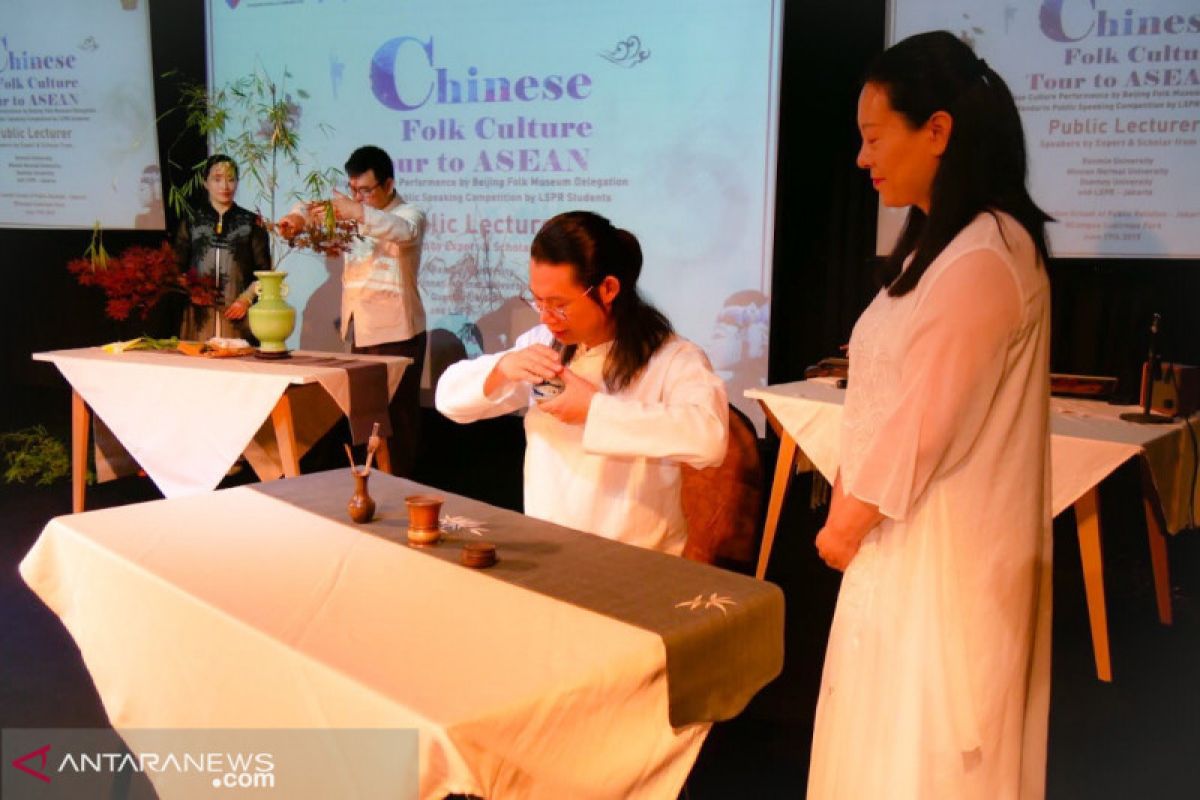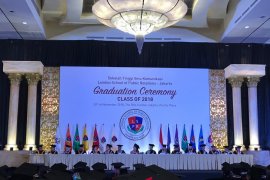A statement received by Antara here on Tuesday noted that Renmin University, Minnan Normal University, and Quemoy University were the trio Chinese varsities taking part in the event.
Minister Counselor of the China Mission for ASEAN Jian Qin was among the attendees at the public lecture. He remarked that folk culture was an indispensible and crucial asset of a nation's cultural identity since it could shed light on the evolution of history and civilization of a nation.
Qin highlighted cultural promotion and preservation as the objectives behind holding the public lecture along with facilitating cultural awareness among members of the younger generation.
"LSPR Jakarta has actively participated in the people-to-people exchange program between China and the ASEAN. LSPR has also integrated Mandarin learning and Chinese culture studies into its curriculum, so we are optimistic of LSPR Jakarta becoming an edifying medium for the younger generation," Qin stated.
The other attendees at the public lecture were Director of Thesis of the LSPR Jakarta Postgraduate Program Rudi Sukandar, Associate Professor at the Renmin University School of Philology Cao Nanlai, Schwarzman Academician from Tsinghua University Yang Yajun, Associate Professor and Deputy Dean of the Minnan Culture Research Institute from Minnan Normal University Liu Yun, and Dean of the Humanities and Social Sciences School of Quemoy University Chen Yiyuan.
During the lecture attended by several hundred students, Sukandar laid stress on Chinese influence in Indonesia in the form of culinary arts and fashion.
Furthermore, Sukandar cited the example of a Chinese named "Luo Fangbo," who had established the first state in Kalimantan.
"The state was built under the supervision of the royal government of Sambas Kingdom long ago," he remarked.
During the panel discussion, Cao Nanlai, an associate professor, School of Philosophy, Renmin University of China, spoke of how cultural heritage could be a link to fostering a sense of mutual understanding between China and other nations.
Furthermore, he highlighted the government's programs focused on efforts to promote the culture of Chinese people through varied events, including tea ceremonies and flower arrangements.
Yang Yajun, a Schwarzman scholar of Tsinghua University, spoke briefly on Chinese folk culture that is not only ethnically unique but also possesses universal similarities.
The Chinese government has resorted to diverse forms of media, including records, communication, and educational programs in collaboration with digital media, to promote its cultural heritage. Cultural promotion is the government's program initiated this year and will be implemented until 2021.
In the meantime, Head of the Center for ASEAN Public Relations Studies Yuliana R. Prasetyawati affirmed that China was one of the ASEAN's most active and strong dialog partners.
Prasetyawati reiterated that the public lecture, held at LSPR, was a concrete event of cultural cooperation to promote cultures between Indonesia and China.
On this occasion, LSPR students showcased the traditional martial art form known as pencak silat to offer a glimpse of Indonesian cultures to the Chinese delegation.
The public lecture was a collaboration of LSPR Jakarta, through the Center for ASEAN Public Relations Studies, with the China Mission for ASEAN.
The event featured some Chinese folk cultures, including tai chi, tea ceremonies, flower arrangement, arts, and traditional musical instruments by the Beijing Folk Museum.
Translator: Bambang Purwanto
Editor: Sri Haryati
Copyright © ANTARA 2019












